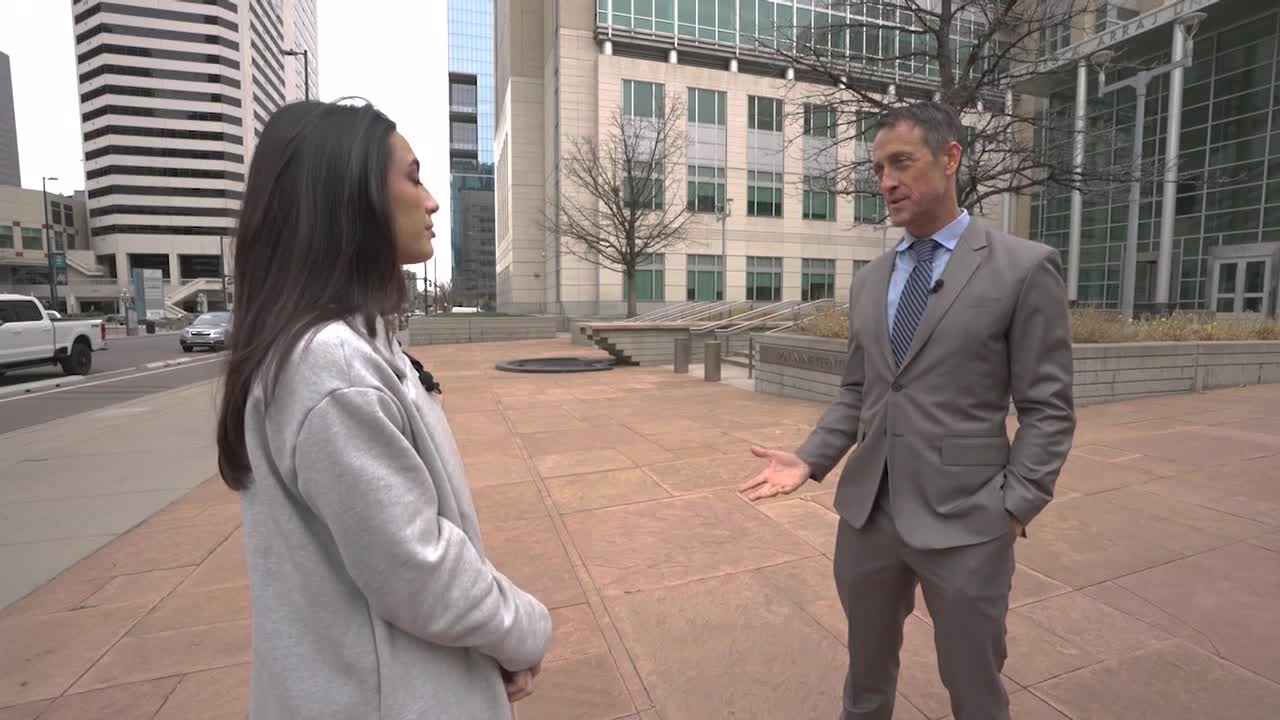A Denver federal judge Thursday OK'd turning one man's challenge to his Immigration and Customs Enforcement detention into a class-action lawsuit, which could have big implications for people in ICE custody who entered the country illegally and are being held without bond.
Judge Regina Rodriguez announced her decision in court Thursday.
“What it means for us is that we will be able to get a decision that impacts a large group of people, rather than having to go to court on a case-by-case basis for people who have the exact same issue,” said Hans Meyer, an immigration attorney representing the plaintiff. “We think it’s a really positive step forward."
“The government's argument is that the way that they've previously interpreted the law is incorrect, and that nobody's eligible for bond, if they ever came in the country without permission,” Meyer said. “We believe, and the government agreed with us for three decades, that people who entered the country without permission, but who have lived here for significant periods of time, are eligible for bond.”
The administration is now considering anyone who crossed the border without permission — regardless of how long they've been in the U.S. — to still be "seeking entry" into the country. Those seeking entry are not eligible for bond, according to the immigration law. Previously, those who had been in the U.S. already, and not apprehended at the border, were eligible for bond.

In court, it was stated that roughly 500 people at the ICE detention facility in Aurora are being held without bond in this manner.
One of those people detained earlier this year was Nestor Esai Mendoza Gutierrez, who came to the U.S. from El Salvador in 1999 and has two teenage children who are American citizens. He was picked up by ICE in May and was denied a bond hearing.
The American Civil Liberties Union picked up his habeas corpus petition — alleging that his detention is illegal — and filed the class-action lawsuit, arguing that a ruling in this case should apply to all people detained in the same manner.
“If everybody has the same legal issue, why would you need to bring 500 different cases that have the exact same issue, when you could have one case that decides it for all 500 people?” said Meyer, who also joined the case.
In October, Judge Rodriguez agreed that Mendoza Gutierrez was being held illegally and ordered his release from the ICE detention facility.
Denver7 Investigates is tracking habeas corpus petitions filed by those detained in ICE detention facilities in Colorado and around the country. The vast majority of federal judges ruling on those petitions are finding in favor of the detained individuals, so far.
Denver7 Investigates also reached out to the Department of Homeland Security for a response. In a statement from Assistant Secretary Tricia McLaughlin, she pointed to a Board of Immigration Appeals ruling in September that allowed detaining people without bond if they had crossed the border illegally.
“President Trump and Secretary (Kristi) Noem are now enforcing this law as it was actually written to keep America safe,” the statement read. “ICE has the law and the facts on its side — we adhere to all court decisions until it ultimately gets them shot down by the highest court in the land.”
Meyer said this class-action lawsuit will help curb the number of habeas corpus cases filed. The judge gave both the plaintiff attorneys and the U.S. attorneys involved in the case until Friday to finalize who can be part of the class-action suit.
“While we have been successful in those cases, it's an inefficient use of time, and it's better for us to resolve these cases all at once as a class action,” Meyer said.






